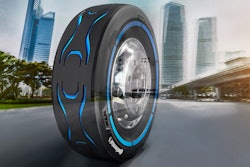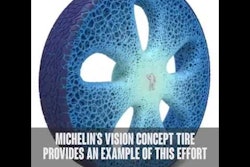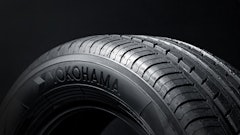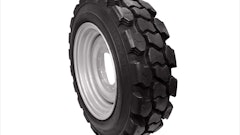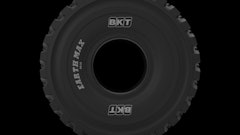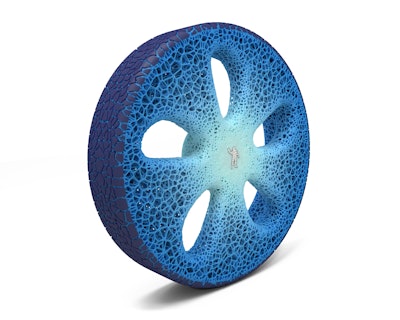
Inspired by the VISION concept tire introduced in 2017, an airless, connected, rechargeable and entirely sustainable solution, the Michelin Group is committed to making its tires 100% sustainable by 2050.
The company initially announced in 2018 that by 2048 all of its tires will be manufactured using 80% sustainable materials and 100% of all tires will be recycled.
Today, nearly 30%* of the components used in the manufacture of tires produced by the Michelin Group are already made from natural, recycled or otherwise sustainable raw materials.
A Michelin tire is a high-tech product comprising more than 200 ingredients. The main one is natural rubber, but the many ingredients also include synthetic rubber, metal, fibers and components that strengthen a tire’s structure, like carbon black, silica and plasticizers (resins, etc.). Incorporated in perfect proportions, these materials interact to deliver an optimal balance of performance, driveability and safety, while steadily reducing the tire’s environmental impact.
An objective being met with powerful R&D capabilities
Michelin’s maturity in materials technology stems from the strength of its R&D capabilities, which are supported by 6,000 people working in seven research and development centers around the world and mastering 350 areas of expertise. The commitment of these engineers, researchers, chemists and developers has led to the filing of 10,000 patents covering tire design and manufacturing. They work hard every day to find the recipes that will improve tire safety, durability, ride and other performance features, while helping to make them 100% sustainable by 2050.
Bold partnerships with innovative companies
Michelin is also aware that the speed and nature of innovation requires new forms of cooperation, which is why it has forged partnerships with innovative start-ups whose advances offer unlimited prospects. The developed technologies go well beyond the world of tires and could be used in other industries, enabling them to benefit as well from recovered raw materials that are infinitely reusable. These technologies will also make it possible to recycle polystyrene and recover carbon black or pyrolysis oil from used tires.
Axens and IFP Energies Nouvelles, the two companies that are spearheading the BioButterfly project, have been working with Michelin since 2019 on producing bio-sourced butadiene to replace petroleum-based butadiene**. Using the biomass from wood, rice husks, leaves, corn stalks and other plant waste, 4.2 million tonnes of wood chips could be incorporated into Michelin tires every year.  The VISION concept tire is airless, connected, rechargeable, customizable and organic.Michelin
The VISION concept tire is airless, connected, rechargeable, customizable and organic.Michelin
Signed in November 2020, the partnership between Michelin and Canada-based Pyrowave can produce recycled styrene from plastics found in packaging, like yogurt pots and food trays, or in insulating panels. Styrene is an important monomer used to manufacture not only polystyrene but also synthetic rubber for tires and a wide variety of consumer goods. Eventually, tens of thousands of tonnes of polystyrene waste could be recycled back into its original products as well as into Michelin tires every year.
The revolutionary process developed by French start-up Carbios, which will be based on a Michelin site from Autumn 2021, uses enzymes to deconstruct PET*** plastic waste into its original pure monomers, which can be infinitely recovered and reused to make new PET plastics. One of these recovered plastics just happens to be the polyester yarn used in tire manufacturing. Some four billion plastic bottles could potentially be recycled into Michelin tires every year.
Lastly, Michelin announced in February 2021 that it will launch the construction of its first tire recycling plant in the world with Enviro. This Swedish company has developed a patented technology to recover carbon black, pyrolysis oil, steel, gas and other new, high-quality reusable materials from end-of-life tires. It will enable everything in these tires to be recovered and reused in several types of rubber-based production processes.
Michelin also supports the circular economy, as attested by its participation in the European BlackCycle consortium. This project, which is coordinated by the Group and financed by the European Union, brings together 13 public- and private-sector partners to design processes to produce new tires from end-of-life tires.
* In 2020, 28% of the materials used in manufacturing Michelin Group tires were sustainable.
** Butadiene is a one of the components in the synthetic rubber used to make tires.
*** Polyethylene terephthalate (PET) is a plastic that is currently oil based, with its two monomers, ethylene glycol and terephthalic acid, being derived from petroleum. It is used to make one of the main polyester fibers used in tire reinforcements.





